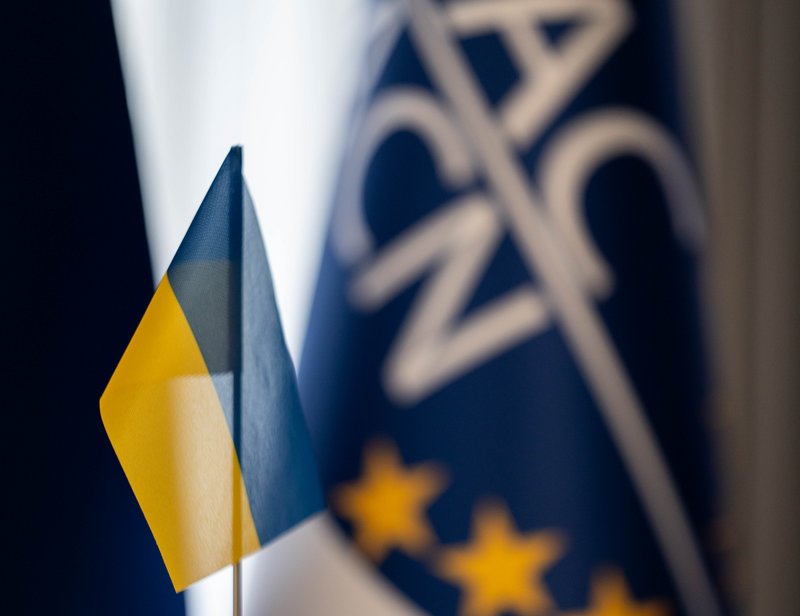EPAC/EACN is concerned regarding legislative developments in Ukraine affecting Anti-Corruption Institutions

The European Partners against Corruption/European contact-point network against corruption (EPAC/EACN) Board is closely monitoring situation regarding the recent adoption of the Law No. 4555-IX by the Parliament of Ukraine (Rada), which came into force on 23 July 2025. This legislation significantly expands the powers of the Prosecutor General of Ukraine, allowing for intervention in ongoing investigations conducted by the National Anti-Corruption Bureau of Ukraine (NABU) and the Specialised Anti-Corruption Prosecutor’s Office (SAPO), without judicial oversight.
With due respect to the sovereignty of Ukraine and challenging context of ongoing defense of its territorial integrity, we emphasise the critical importance of safeguarding the independence, integrity and effectiveness of specialised anti-corruption institutions. Independence is not only essential to ensuring fair and effective investigations, but is also a cornerstone of democratic governance, accountability and public trust. These changes risk undermining the autonomy and operational capacity of institutions that have been critical in advancing Ukraine’s anti-corruption reform agenda, particularly in the framework of Ukraine’s EU and OECD accession processes.
Notably, the National Anti-Corruption Bureau of Ukraine (NABU), a longstanding and active member of the EPAC/EACN network, has consistently demonstrated commitment to international anti-corruption standards and practices. Therefore, weakening its independence would be a significant setback to Ukraine’s reform progress and international credibility.
With full respect to the country’s legislative and executive system and its prerogative to plan and implement own national policies, as well as allocate and use its resources, it is important to underline the obligations stemming from the instruments elaborated and adopted within the framework of organisations such as the United Nations (UNCAC), the Council of Europe, the European Union, the OECD, as well as numerous EPAC/EACN documents such as EPAC/EACN Declarations (2004-2024) and standards on anti-corruption authorities (see the International standarts below).
EPAC/EACN Board expresses its hope that any planned reforms in Ukraine will take a due consideration of the above-mentioned international standards and only after objective evaluation of the capacity and effectiveness of the already existing and well-working structures.
INTERNATIONAL STANDARDS
EPAC/EACN wish to raise the importance of the international standards that highlight the need for specialised institutions and persons in the area of detection, investigation, prosecution and adjudication of corruption offences:
1. Council of Europe Resolution (97) 24 on the twenty guiding principles for the fight against corruption [1], adopted in 1997. Guiding principle 3 requires to “Ensure that those in charge of the prevention, investigation, prosecution and adjudication of corruption offences enjoy the independence and autonomy appropriate to their functions, are free from improper influence and have effective means for gathering evidence, protecting the persons who help the authorities in combating corruption and preserving the confidentiality of investigations“. Principle 7 calls upon promoting„ <…> the specialisation of persons or bodies in charge of fighting corruption and to provide them with appropriate means and training to perform their tasks“.
2. Criminal Law Convention on Corruption (CETS 173), adopted in 1998 by the Council of Europe, Article 20 imperatively determines that “Each Party shall adopt such measures as may be necessary to ensure that persons or entities are specialised in the fight against corruption. They shall have the necessary independence in accordance with the fundamental principles of the legal system of the Party, in order for them to be able to carry out their functions effectively and free from any undue pressure. The Party shall ensure that the staff of such entities has adequate training and financial resources for their tasks“.
3. Article 6 of the United Nations Convention against Corruption (UNCAC) require member states to ensure specialisation of law enforcement institutions “Each State Party shall, in accordance with the fundamental principles of its legal system, ensure the existence of a body or bodies or persons specialized in combating corruption through law enforcement. Such body or bodies or persons shall be granted the necessary independence, in accordance with the fundamental principles of the legal system of the State Party, to be able to carry out their functions effectively and without any undue influence. Such persons or staff of such body or bodies should have the appropriate training and resources to carry out their tasks.”.
4. Article 5 of the OECD Convention on Combatting Bribery of Foreign Public Officials in International Business Transactions (Anti-Bribery Convention) and Recommendation VII of the Recommendation of the Council to Further Combatting Bribery of Foreign Public Officials in International Business Transactions underline the principle of independent investigation and prosecution of the bribery of foreign public officials.
5. The very first Rule of Law Report adopted by the European Commission in 2020 states that “the fight against corruption in essential for maintaining the rule of law. <…> It is also of key importance for the institutions entrusted with enforcement of criminal law to work in an effective and impartial manner. It is fundamental for the judiciary, prosecution and law enforcement bodies to be equipped with adequate funding, human resources, technical capacity and specialised expertise.”
6. EPAC/EACN own developed documents, such as Anti-corruption Authority Standards and Police Oversight Principles[2], Anti-Corruption Authority Standards[3], Police Oversight Principles[4], and numerous EPAC/EACN Declarations adopted between 2004 and 2024[5], underline the importance of independence and impartiality of anti-corruption bodies, as well as the need to prevent from any undue influence (direct and indirect) upon bodies responsible for combatting corruption.
[2] www.epac-eacn.org/fileadmin/Documents/Recommendations/EPAC_Handbook_Online.pdf
[3] www.epac-eacn.org/fileadmin/Documents/Recommendations/Anti-Corruption_Authority_Standards.pdf
[4] www.epac-eacn.org/fileadmin/Documents/Recommendations/Police_Oversight_Principles.pdf